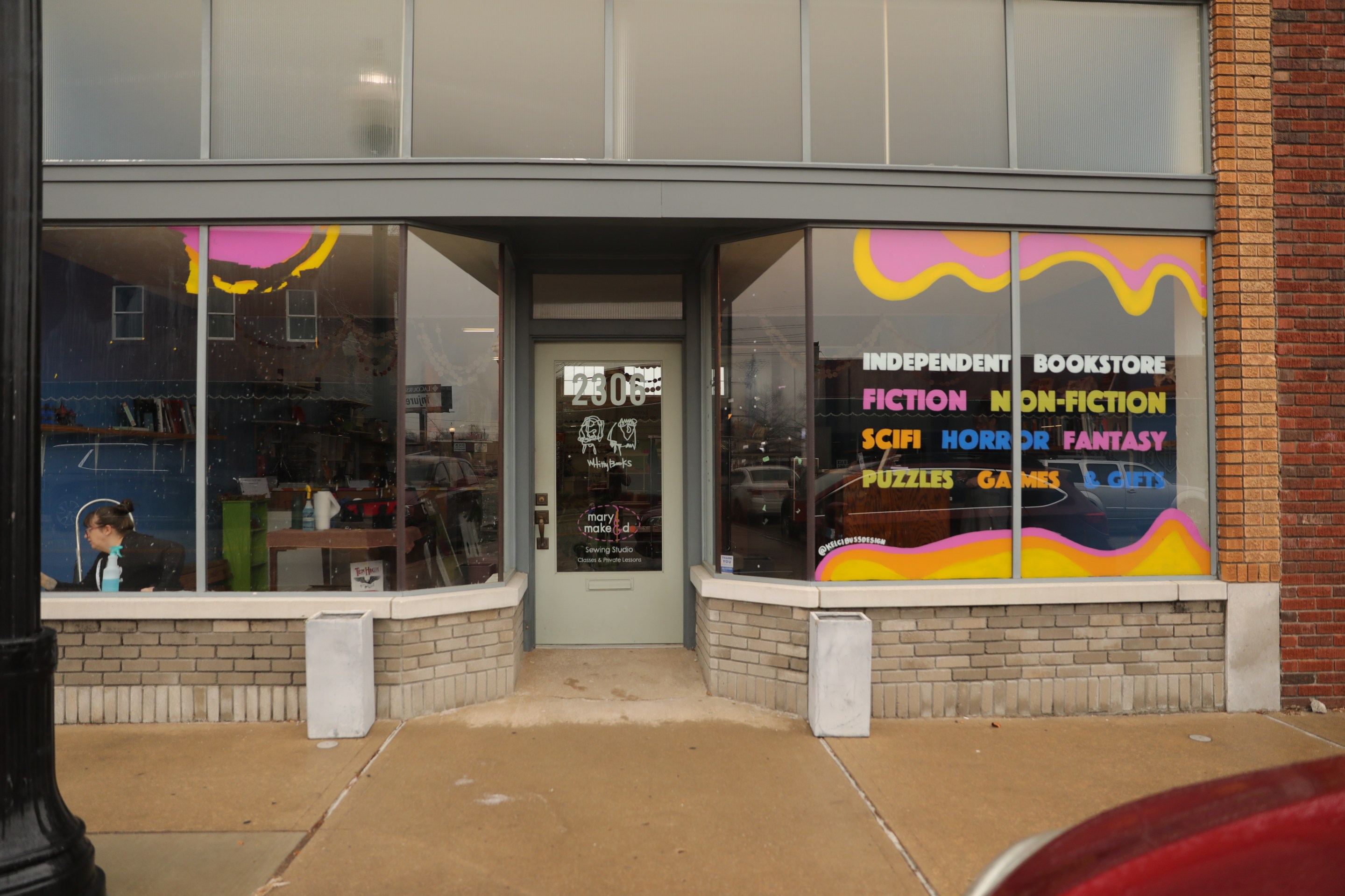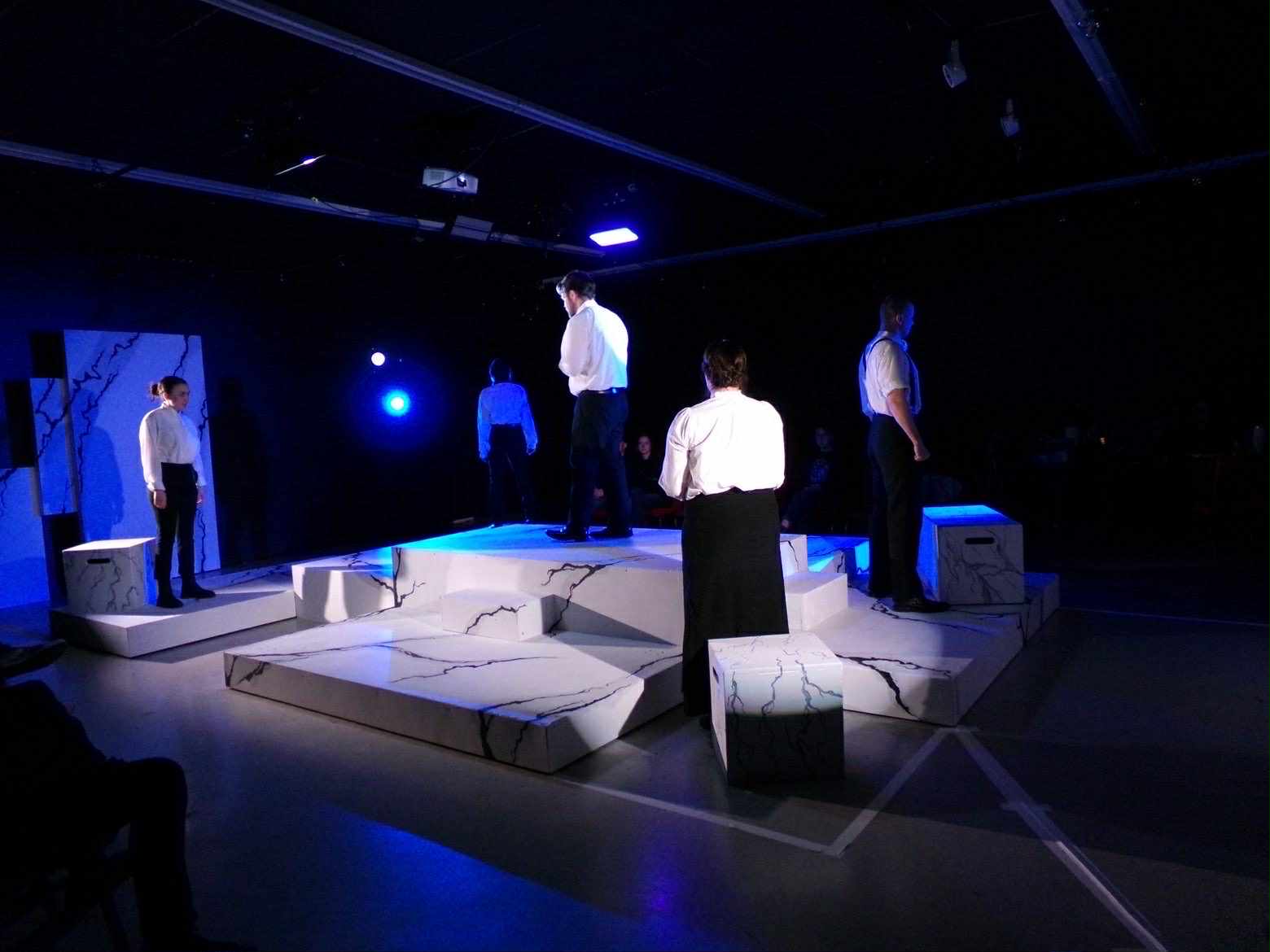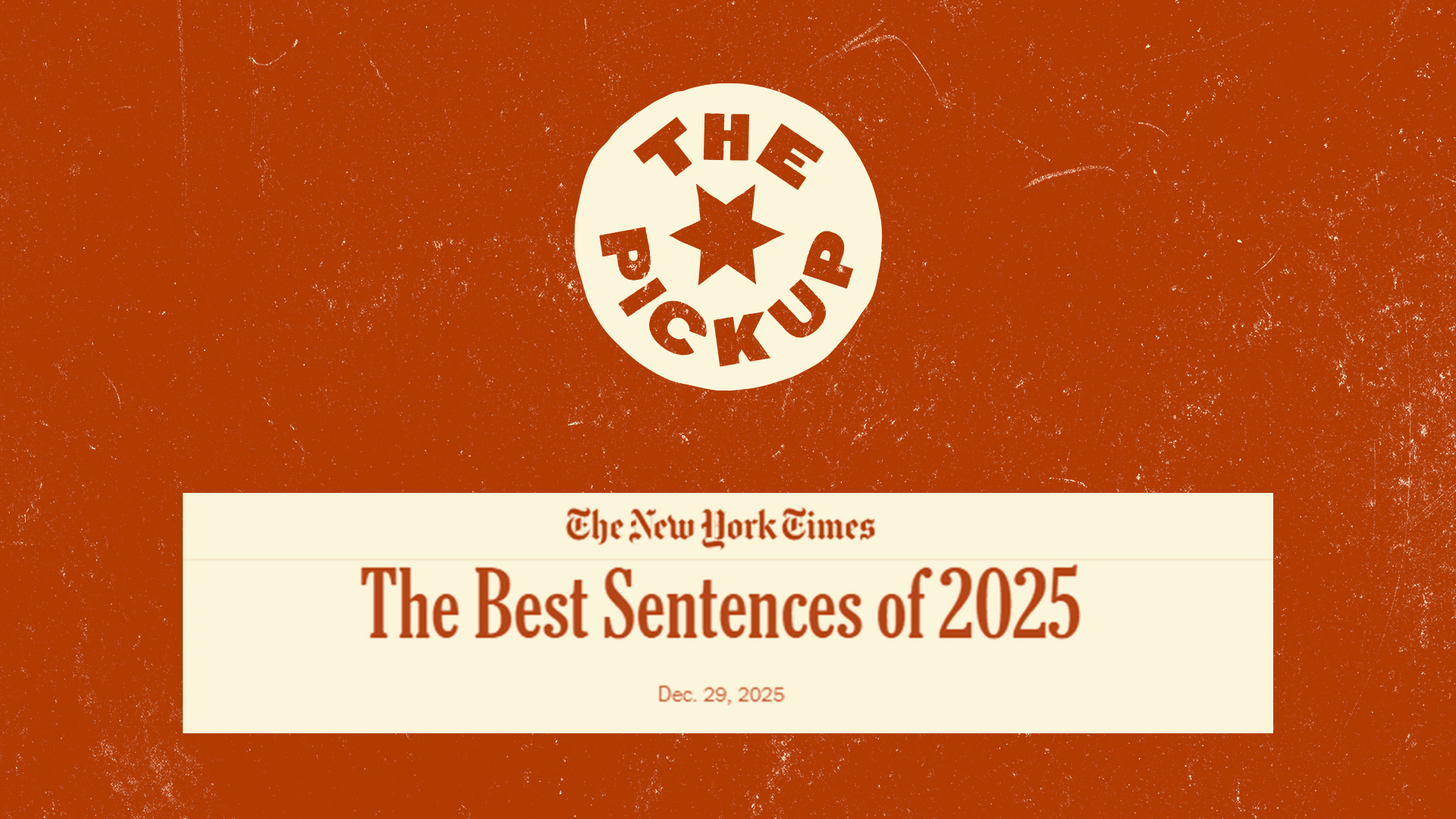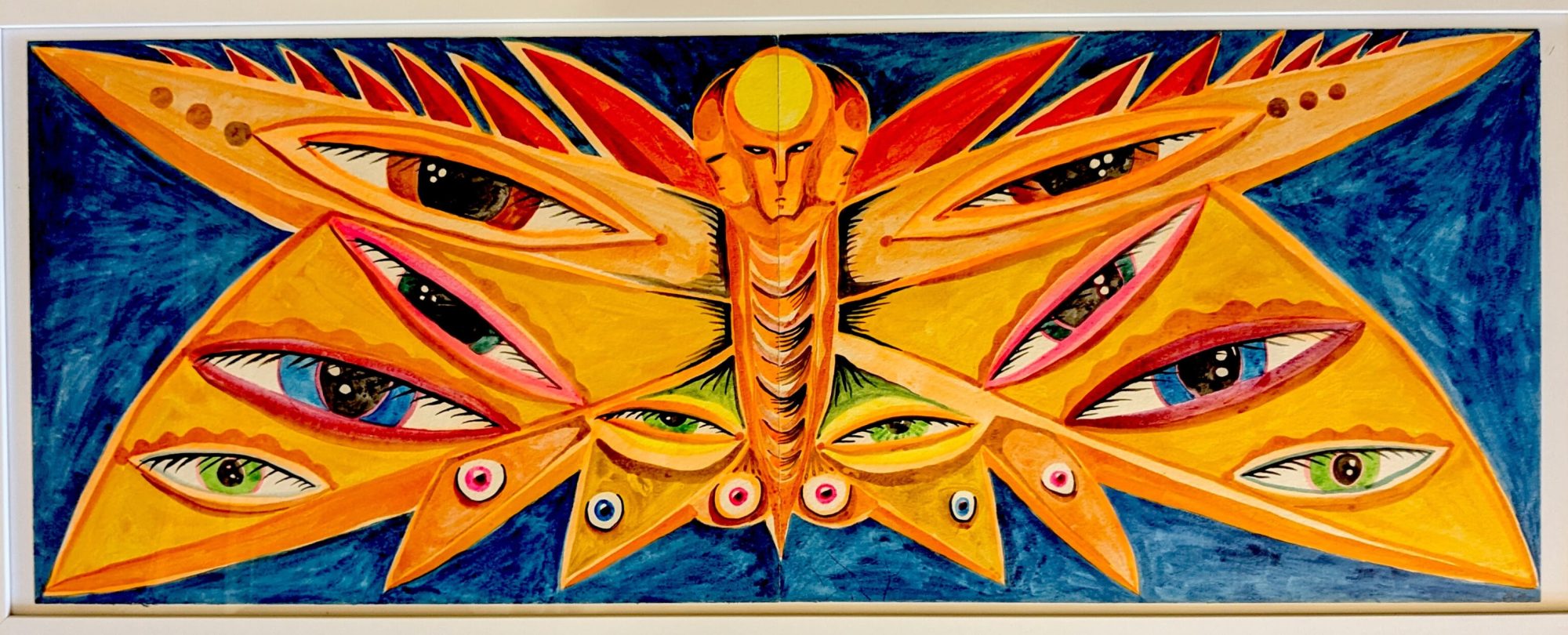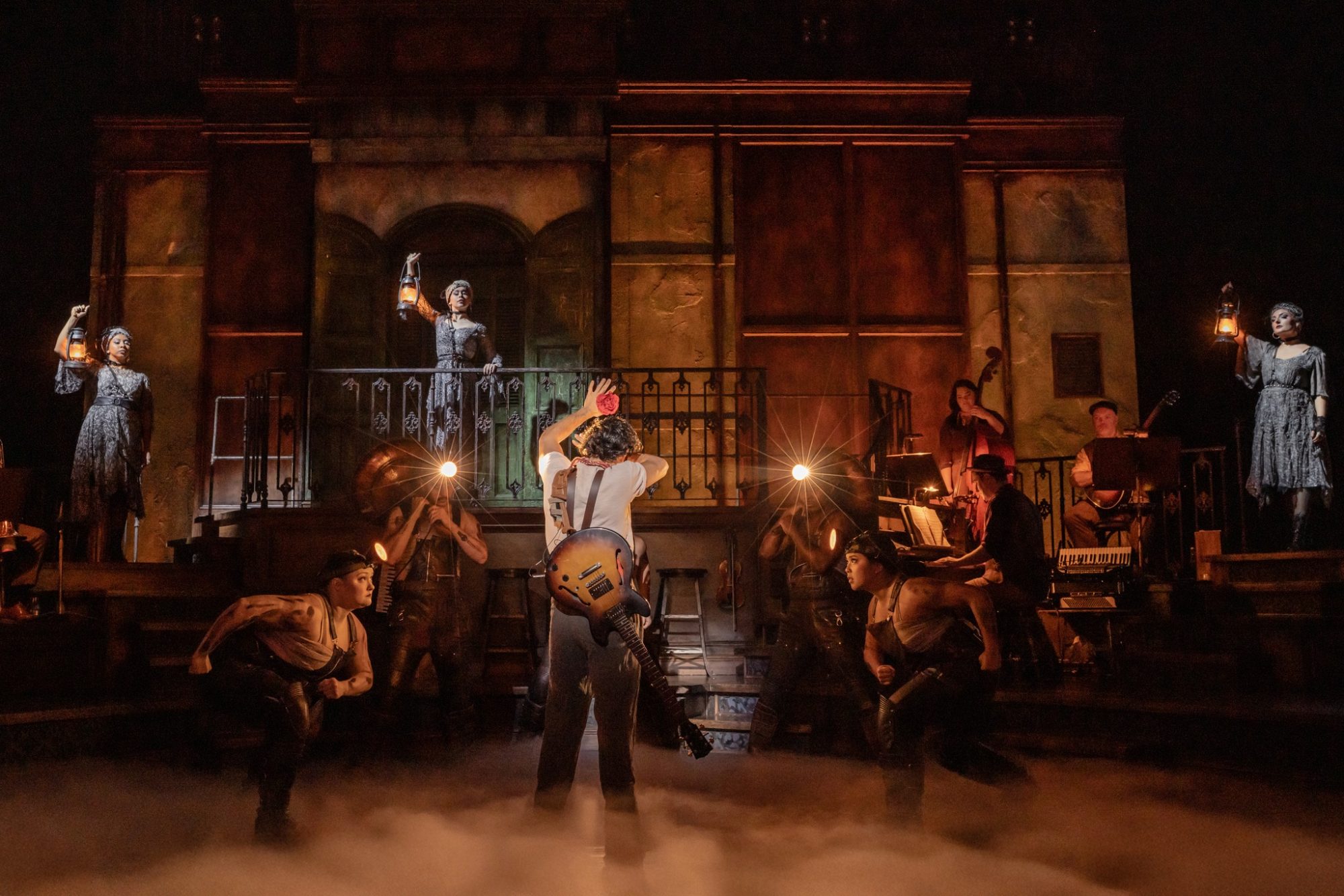In 2018, wandering through Barnes & Noble, I noticed that the cover of almost every bestselling book bore an iteration of the same boring design. The author’s name and title of the book appeared in slightly-stylized font, and behind the text floated some vague shapes or pastel colors: the lazy type of design easy to parse on an Amazon or Goodreads list. As I wondered about the long-term implications of this algorithm-first aesthetic, a realization hit me: I’d lost my desire to read.
Now, my waning love of reading isn’t totally the fault of the waves of sameness radiating from the bestseller list. Talking about aesthetic trends in cover designs means I’m painting with a broad brush—though to be fair, so are the people designing these things. Still, the wall-to-wall shelves stocked with coldly iterative art felt hostile to curiosity, unpredictability, and strangeness: all those aspects of reading I’d loved and lost. I needed inspiration. I needed newness. I needed Whitty Books.
The minute I opened the door, it became apparent that Whitty Books had a particular character that the owners, Victoria Moore and Julian DeLesDernier, expressed through the titles on display. Here, in places other bookstores would showcase the culture’s hottest new releases, were horror novellas, speculative fiction anthologies, experimental poetry, indie comics–most of them from small presses. Everywhere I looked, I encountered the unfamiliar, and it became clear to me that Whitty Books was, first and foremost, a place for the independent, the underdog, the avant-garde, the local.
It was a place for the weird.
On my first visit, I decided to pick only books from unfamiliar presses. My eyes settled on a cover with a colorful image of a woman riding an elephant; behind them, a circus tent burned in the setting sun. I tucked that copy of The Dozen, a poetry collection by Casey Rocheteau, under my arm. I returned within a week or two, and I left with For Other Ghosts, a collection of short stories by Donald Quist. On its cover, two figures sit atop lonely planets and look longingly at each other across a gulf of shooting stars.
Over the next few years, I’d build a collection of strange titles boasting strange and beautiful art on the covers–a tangle of roots in the shape of a man’s face (Silver in the Wood, Emily Tesh), a drawing of an eel in the shape of infinite (The Embalmer, Anne-Renée Caillé), an image of a farm decaying forlornly in an overgrown field beneath a sickly green sky (Home Movie, Nowhere, Julia Madsen). Each of these books contain a bit of the uncanny, the type of weirdness I could expect to encounter at Whitty Books.
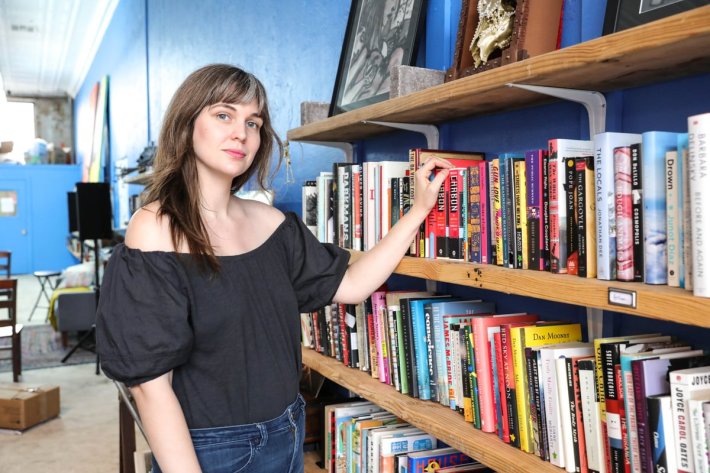
As far as an ethos goes, creating a space for the weird in Tulsa is a noble one. In academia, where I live and work, “the weird” troubles our desperate need for certainty, existing just outside a comfortable frame of reference. The genre we academics call “weird fiction” dances on the borders of genres and stretches form to its limits. Those works that resist our attempts to classify them cleanly bear the moniker of “weird.” Making the small press an essential pillar of a neighborhood bookshop meant trusting that the community would embrace weirdness in reading material and, indeed, as an idea altogether.
You can’t build a place like this without risk and hard work. Moore, who curated the collection, often told me about the time she spent hunting new titles and tracking down authors to feature in the store. Her efforts shone in the diverse titles that packed the shelves, but, more importantly, they made the store feel personal. It takes tireless work and curiosity to prioritize small presses and new writers. The intention behind each of her choices made the books on display feel like personal recommendations rather than simple stock to peruse. “Here’s something different and interesting,” each one seemed to say. “It might be your thing. Give it a shot.”
It was that attitude and that character of Whitty Books that drew the community to it. Here was a place that celebrated the blurring of borders with a playful generosity. The various groups who met there regularly–writers, readers, musicians, folks who just love a good author talk, etc.–can all testify to the warmth and safety that permeated the store and fostered a creative energy there. To indulge in the weird means playing in the incongruities of artistic creation, and testing out ideas and projects with an encouraging community can only happen if there’s a space for it.
That’s the real magic of what Whitty Books offered. In creating a space for the weird and the independent presses, DeLesDernier and Moore opened their doors to the weird and independent people of Tulsa. The store became a microcosm of the Kendall-Whittier neighborhood. It had the expressive punk spirit of the tattoo parlor across the street. The devotion to independent writing echoed the sensibilities of Circle Cinema’s devotion to independent film. It had the friendly, relaxed atmosphere of a taproom, the creative spirit of an artist’s studio. The Center of the Universe may be downtown, but the Nexus of the Weird pulsed in the heart of a neighborhood bookstore.
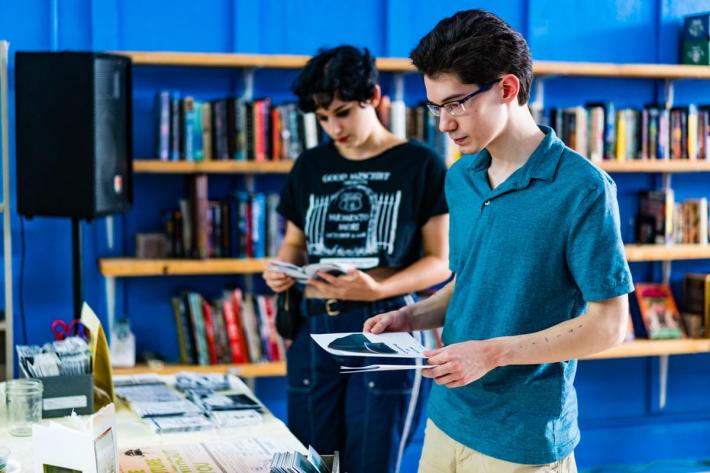
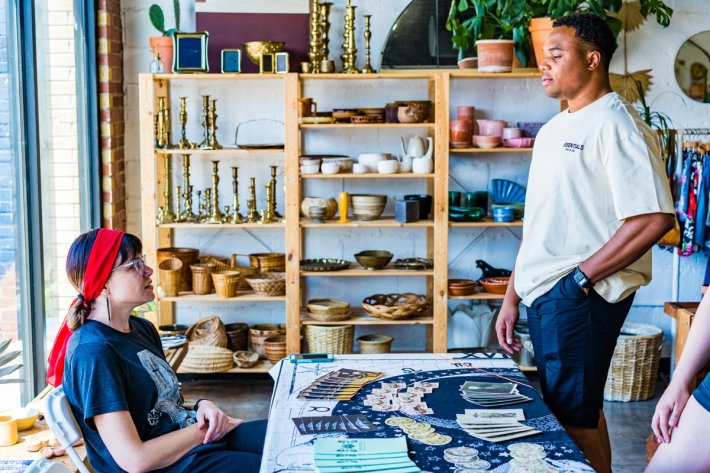
“Tulsa doesn’t really have a place that caters to small presses,” Moore told me not long after they broke news that the store was closing. But for those of us who loved Whitty Books, there’s plenty of reason to hope. There’s the Whitty Books stall in Meadow Gold Mack, which will continue to stock some of their collection. There’s Horns & Rattles Press, which published my first fiction in Bitter Become the Fields, and which will hopefully publish more fiction in the future. There’s the obvious proof of Tulsa’s hunger for the weird, which Whitty Books proved to be alive and well; hosting punk, horror, sci-fi, and Native American literature reading clubs for six straight years is an impressive feat by any metric. Most importantly, we can trust what Whitty Books showed us: that the panacea for the suffocating monotony of sameness is to get a little weird, to curate with intention and share what we find.
We were lucky to have Whitty Books. We were lucky to have curious people open their hearts and their doors to surprising writing, and to do the work of bringing the weird to the neighborhood. Now, when I look at the books I’ve bought, and the beautiful covers that drew me to their strange stories, I know it’s up to us to seek out the unfamiliar, to support new writers and small presses. The weird is never far away, and it’s ours to cultivate wherever we can.
The Kendall-Whittier shop Whitty Books is gone but not forgotten, and I’ll be checking out their setup on Route 66 soon. Long live the Tulsa weird.
